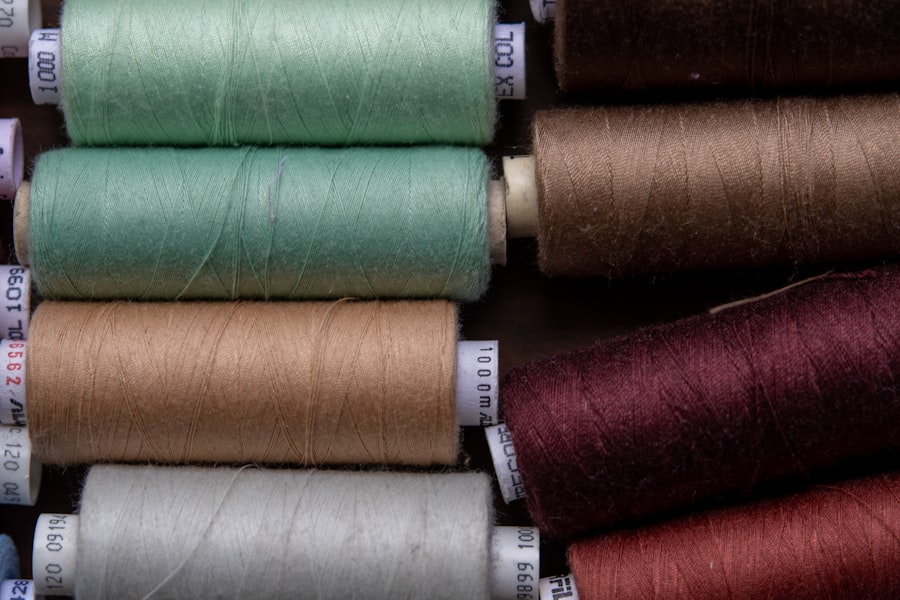Pecking behavior in chickens can be attributed to various factors, and comprehending these causes is essential for addressing and preventing the issue. Overcrowding is a common trigger for pecking, as chickens kept in confined spaces may experience stress and exhibit aggression towards one another. Boredom and lack of mental stimulation can also lead to pecking, as chickens are intelligent animals that require environmental enrichment to remain engaged and avoid negative behaviors.
Insufficient access to food and water can cause agitation and pecking among chickens, making it crucial to provide constant access to fresh resources. Hierarchy and social dynamics within the flock play a significant role in pecking behavior. Chickens naturally establish a pecking order, with dominant birds asserting their authority over subordinate ones.
While this behavior is normal to some extent, it can escalate into problematic aggression and injury. Environmental factors such as temperature, lighting, and ventilation can also contribute to pecking behavior, as chickens are sensitive to their surroundings. Any discomfort or stress caused by these factors may lead to aggressive behavior.
By understanding the underlying causes of pecking behavior, chicken owners can implement proactive measures to address the issue and create a healthier, more harmonious living environment for their flock. This may include providing adequate space, mental stimulation, proper nutrition, and optimal environmental conditions to minimize stress and aggression among chickens.
Table of Contents
- 1 Providing adequate space and enrichment for your chickens
- 2 Ensuring a balanced diet for your chickens
- 3 Identifying and removing aggressive or injured chickens from the flock
- 4 Using deterrents and distractions to prevent pecking
- 5 Monitoring and addressing stress and environmental factors
- 6 Seeking professional advice and support if pecking behavior persists
- 7 FAQs
- 7.1 What are some reasons why chickens peck each other?
- 7.2 How can I prevent my chickens from pecking each other?
- 7.3 What are some enrichment activities for chickens to prevent pecking behavior?
- 7.4 Are there any nutritional deficiencies that can lead to pecking behavior in chickens?
- 7.5 What should I do if I notice chickens pecking each other?
Key Takeaways
- Pecking behavior in chickens can be caused by stress, boredom, overcrowding, or nutritional deficiencies
- Providing adequate space, enrichment, and opportunities for natural behaviors can help reduce pecking behavior
- A balanced diet with proper nutrition is essential for preventing pecking behavior in chickens
- Identifying and removing aggressive or injured chickens from the flock can help prevent pecking behavior from spreading
- Using deterrents and distractions such as pecking blocks or hanging treats can help redirect pecking behavior
- Monitoring and addressing stress and environmental factors such as temperature, lighting, and ventilation can help reduce pecking behavior
- Seeking professional advice and support from a veterinarian or poultry expert is important if pecking behavior persists despite efforts to address it
Providing adequate space and enrichment for your chickens
Providing Adequate Space and Mental Enrichment
One of the most important steps in preventing pecking behavior in chickens is to provide them with adequate space and mental enrichment. Chickens require a certain amount of space to move around, stretch their wings, and engage in natural behaviors such as dust bathing and foraging. Overcrowding can lead to stress and aggression, so it’s crucial to provide enough space for each bird in the flock. A general rule of thumb is to allow at least 4 square feet of space per chicken in the coop, and even more space in the outdoor run if possible.
Creating a Comfortable Living Environment
In addition to space and enrichment, it’s important to provide a comfortable and clean living environment for chickens. This includes proper ventilation, lighting, and temperature control in the coop, as well as regular cleaning and maintenance to prevent the buildup of waste and bacteria. A clean and comfortable living environment can help reduce stress and promote overall well-being in the flock.
Ensuring Access to Fresh Food and Water
Furthermore, providing access to fresh food and water at all times is essential in preventing hunger-related aggression. By ensuring that chickens have access to a balanced diet and clean water, chicken owners can help maintain a peaceful and harmonious living environment for their flock.
Ensuring a balanced diet for your chickens

A balanced diet is essential for the health and well-being of chickens, and it can also play a significant role in preventing pecking behavior. Chickens require a diet that is rich in nutrients such as protein, vitamins, and minerals to support their growth, egg production, and overall health. A lack of essential nutrients can lead to deficiencies and health issues that may manifest as aggressive or abnormal behavior in chickens.
It’s important to provide chickens with a high-quality commercial feed that is specifically formulated for their age and purpose, whether it’s for laying hens, broilers, or chicks. In addition to commercial feed, chickens also benefit from access to fresh fruits, vegetables, and grains as part of their diet. These natural foods provide additional nutrients and fiber that can help keep chickens healthy and satisfied.
Additionally, providing access to grit and oyster shell can help support digestion and calcium absorption in laying hens. It’s important to monitor the condition of the flock and adjust their diet as needed based on their age, health status, and seasonal changes. By ensuring that chickens receive a balanced diet that meets their nutritional needs, chicken owners can help prevent deficiencies that may contribute to pecking behavior.
Furthermore, it’s important to monitor the feeding process to ensure that all chickens have equal access to food. Dominant birds may monopolize the food source, leaving subordinate birds hungry and agitated. Providing multiple feeding stations or spreading out the food can help prevent competition and aggression during feeding time.
By ensuring that all chickens have equal access to a balanced diet, chicken owners can help maintain a peaceful and harmonious living environment for their flock.
Identifying and removing aggressive or injured chickens from the flock
Aggressive or injured chickens can be a source of pecking behavior within the flock, so it’s important to identify and remove these birds to prevent further issues. Aggressive behavior can be exhibited by dominant birds asserting their authority over subordinate birds, or by individual birds displaying aggressive tendencies towards others. Injured birds may also become targets for pecking by other members of the flock.
It’s important to monitor the behavior and physical condition of all chickens regularly to identify any signs of aggression or injury. Once aggressive or injured birds are identified, they should be removed from the flock and placed in a separate area for treatment or observation. This can help prevent further aggression towards them and allow them to recover without additional stress or harm.
In some cases, aggressive birds may need to be permanently removed from the flock if their behavior poses a significant risk to the well-being of other chickens. By identifying and removing aggressive or injured birds from the flock, chicken owners can help prevent pecking behavior and create a safer living environment for their chickens. Additionally, it’s important to reintroduce removed birds back into the flock carefully once they have recovered or their behavior has been addressed.
Reintroduction should be done gradually and under close supervision to prevent further aggression or stress. By taking proactive steps to identify and remove aggressive or injured birds from the flock, chicken owners can help maintain a peaceful and harmonious living environment for their chickens.
Using deterrents and distractions to prevent pecking
Deterrents and distractions can be effective tools in preventing pecking behavior in chickens. One common deterrent is the use of anti-pecking sprays or ointments that can be applied to the feathers of aggressive birds. These products have a bitter taste that discourages pecking and can help prevent further aggression within the flock.
Additionally, physical deterrents such as chicken saddles or aprons can be used to protect injured birds from further pecking by other members of the flock. Distractions such as hanging treats or toys in the coop or run can also help keep chickens engaged and prevent boredom-related pecking behavior. For example, hanging a head of cabbage or a treat dispenser filled with mealworms can provide mental stimulation and encourage natural foraging behaviors in chickens.
This can help redirect their attention away from pecking at each other and towards more positive activities. Furthermore, providing access to outdoor areas such as a pasture or garden can also help prevent pecking behavior by allowing chickens to engage in natural behaviors such as scratching, dust bathing, and foraging. Outdoor areas provide additional space and mental enrichment for chickens, which can help reduce stress and prevent negative behaviors within the flock.
By using deterrents and distractions effectively, chicken owners can help prevent pecking behavior and create a healthier living environment for their flock.
Monitoring and addressing stress and environmental factors

Environmental Factors Affecting Chicken Well-being
Environmental factors such as temperature, lighting, ventilation, and noise levels can significantly impact the well-being of chickens. For instance, high temperatures or poor ventilation can lead to heat stress, while inadequate lighting can disrupt their natural sleep patterns.
Flock Dynamics and Routine Changes
Changes in the flock dynamics or the introduction of new birds can cause stress within the flock, leading to pecking behavior. It is crucial to introduce new birds gradually and under close supervision to prevent aggression towards them. Similarly, changes in routine or disruptions in the living environment can also cause stress in chickens.
Reducing Stress and Preventing Pecking Behavior
By monitoring and addressing stress and environmental factors effectively, chicken owners can help prevent pecking behavior and create a healthier living environment for their flock. This can be achieved by providing opportunities for relaxation and mental stimulation, such as access to shaded areas, perches for roosting, and toys or treats for mental enrichment. Maintaining a consistent routine for feeding, cleaning, and handling can also help reduce stress by providing predictability for the flock.
Seeking professional advice and support if pecking behavior persists
If pecking behavior persists despite proactive measures taken by chicken owners, it’s important to seek professional advice and support from a veterinarian or poultry expert. Persistent pecking behavior may be indicative of underlying health issues or behavioral problems within the flock that require professional intervention. A veterinarian with experience in poultry health can conduct a thorough assessment of the flock’s health status and provide recommendations for addressing any underlying health issues that may be contributing to pecking behavior.
Additionally, seeking support from a poultry expert or animal behaviorist can provide valuable insights into addressing behavioral issues within the flock. These professionals can offer guidance on implementing behavioral modification techniques, environmental adjustments, or management strategies that may help address pecking behavior effectively. They can also provide recommendations for improving the overall well-being of the flock through proper nutrition, housing, and management practices.
In some cases, seeking professional advice may also involve exploring alternative housing options or management practices that are better suited to addressing the specific needs of the flock. For example, integrating different breeds of chickens with compatible temperaments or separating aggressive individuals into smaller groups may help reduce pecking behavior within the flock. By seeking professional advice and support when needed, chicken owners can gain valuable insights into addressing pecking behavior effectively and creating a healthier living environment for their flock.
In conclusion, understanding the reasons behind pecking behavior in chickens is crucial in addressing and preventing this issue within the flock. Providing adequate space and enrichment, ensuring a balanced diet, identifying and removing aggressive or injured birds from the flock, using deterrents and distractions effectively, monitoring stress and environmental factors closely, and seeking professional advice when needed are all important steps in creating a peaceful and harmonious living environment for chickens. By taking proactive measures to address pecking behavior effectively, chicken owners can promote the overall well-being of their flock and enjoy a more positive relationship with their feathered friends.
If you’re looking for ways to keep your chickens from pecking each other, you might want to consider renting a chicken coop. According to a related article on Poultry Wizard, renting a chicken coop can provide a safe and secure environment for your chickens, reducing the likelihood of pecking behavior. Renting a chicken coop can also give you the flexibility to try out different coop designs and sizes to see what works best for your flock.
FAQs
What are some reasons why chickens peck each other?
Chickens may peck each other due to overcrowding, boredom, stress, lack of space, or a nutritional deficiency.
How can I prevent my chickens from pecking each other?
To prevent chickens from pecking each other, provide adequate space, enrichment activities, proper nutrition, and a well-designed coop with places to hide and perch.
What are some enrichment activities for chickens to prevent pecking behavior?
Enrichment activities for chickens include providing toys, hanging treats, dust baths, and access to the outdoors for foraging.
Are there any nutritional deficiencies that can lead to pecking behavior in chickens?
Yes, a lack of protein, vitamins, or minerals in the diet can lead to pecking behavior in chickens. It’s important to provide a balanced and nutritious diet for your flock.
What should I do if I notice chickens pecking each other?
If you notice chickens pecking each other, separate the injured bird, address any potential causes of stress or boredom, and monitor the flock for any signs of illness or aggression.
Meet Walter, the feathered-friend fanatic of Florida! Nestled in the sunshine state, Walter struts through life with his feathered companions, clucking his way to happiness. With a coop that’s fancier than a five-star hotel, he’s the Don Juan of the chicken world. When he’s not teaching his hens to do the cha-cha, you’ll find him in a heated debate with his prized rooster, Sir Clucks-a-Lot. Walter’s poultry passion is no yolk; he’s the sunny-side-up guy you never knew you needed in your flock of friends!







